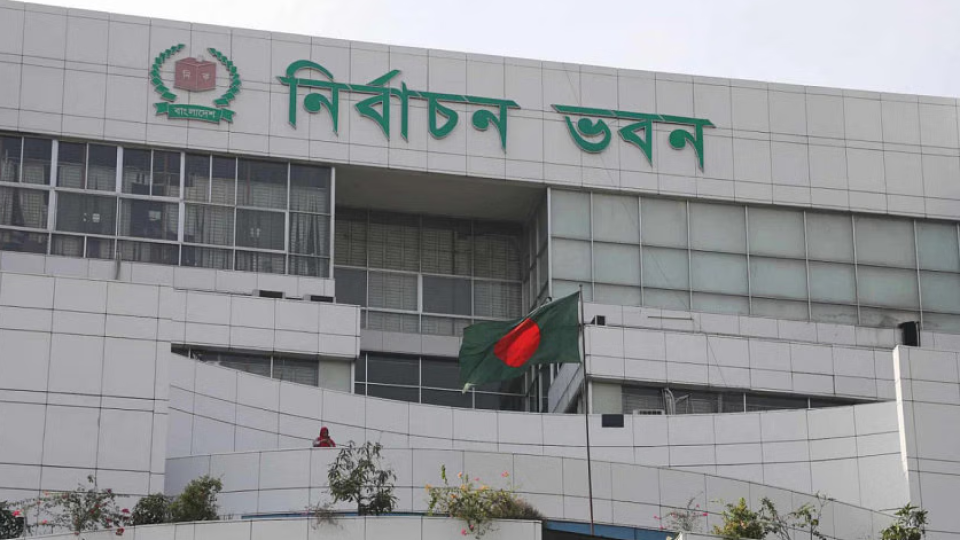December 22, 2023
DHAKA – The Election Commission accepts the aspirants’ wealth statements but never takes any initiative to properly verify the accounts.
This raises questions over the commission’s sincerity in holding the candidates accountable and ensuring transparency, say campaigners for good governance.
According to former NBR chairman Badiur Rahman, the EC could exercise its inherent powers and ask the National Board of Revenue (NBR) and Anti-Corruption Commission (ACC) to verify the wealth claims.
“The Election Commission can ask the NBR to scrutinise the claims. If there are doubts, the Anti-Corruption Commission can be engaged too,” he told The Daily Star.
As article 126 of the constitution makes it mandatory for all executive authorities to assist the EC, the institutions are bound to cooperate if the EC seeks their support.
On the other hand, the Representation of the People (amended) Act, 2023, does not make it mandatory for the EC to scrutinise the candidates’ wealth statements.
Election Commissioner Anisur Rahman said it is not the EC’s responsibility to scrutinise wealth statements.
If the NBR or ACC want, they can verify the claims about wealth, Anisur told The Daily Star recently.
However, Shusashoner Jonno Nagorik Secretary Badiul Alam Majumdar said even though the EC is not bound to verify wealth statements, it can and should do it for the sake of ensuring transparency.
“The Election Commission’s way of recording the candidates’ wealth information is nothing but paperwork. We don’t know if any candidate was ever quizzed about their wealth,” he said.
The EC is supposed to upload the candidates’ affidavits on its website immediately after receiving them, but it takes weeks to do it, he said.
Former election commissioner Muhammed Sohul Hussain said the wealth details submitted by candidates must be scrutinised.
“If they could not do it on a short notice, there should be a system to do it after the election,” he added.
Affidavits are a requirement for anyone participating in an election. Lying in the affidavits is punishable by up to three years in prison under the criminal law.
There is a provision in the Representation of the People Act, 2023, to cancel the candidacy of an aspirant for lying under oath.
The Supreme Court in 2007 asked the EC to collect the wealth statements of candidates and make them public. The EC later incorporated a provision in the law to this effect.
At least 1,896 aspirants will run for parliament in the January 7 election from the country’s 300 constituencies. Over 1,500 of them are nominees of 27 political parties.
AL Advisory Council member Nooh-Ul-Alam Lenin said if there is a provision for recording the candidates’ wealth information, there should also be a provision for verifying it.
“This might not be possible ahead of January 7. But those concerned should consider amending the law in the next parliament. This will increase people’s trust in wealth statements,” he said.
In Awami League’s 2008 election manifesto, one of the pledges was to “take effective steps against corruption”.
The manifesto reads, “Influential individuals have to disclose their annual wealth information. Stern steps will be taken to prevent and erase corruption… to wipe out graft, unearned money, defaulted loans, extortion, tender manipulation, and muscle power.”
In its 2014 election manifesto, the AL replaced the word Influential with “citizens of all tiers”.
“Accountability of citizens from all tiers regarding one’s wealth, income will be ensured,” it reads.
In the 2018 manifesto, the AL did not mention issues related to wealth.
AL lawmaker Saber Hossain Chowdhury in 2010 placed a bill on the Code of Conduct for Members of Parliament in the Jatiya Sangsad.
The bill was aimed at ensuring that lawmakers uphold high moral standards in and outside the House.
The UK, India, Canada, South Africa, and different other countries have codes of conduct for their MPs.
However, no step was taken to pass Saber’s bill.
Shujan Secretary Badiul said if Saber’s bill was passed, the MPs would have been required to disclose their wealth information every year.
Responding to a question regarding the allegations of unusual increase in the wealth of some AL nominees, the party’s General Secretary Obaidul Quader on December 12 said, “If the Anti-Corruption Commission does not raise questions, and the aspirant is allowed to participate in the polls, then you cannot call them corrupt.”
Rights activist and former adviser to a caretaker government Sultana Kamal said she is surprised at how the wealth of some candidates has increased.
“When I read the newspapers, I wonder if this is real… the wealth of some people has increased by 200 times, 300 times or 400 times,” she said, adding the candidates’ wealth information must be scrutinised.


